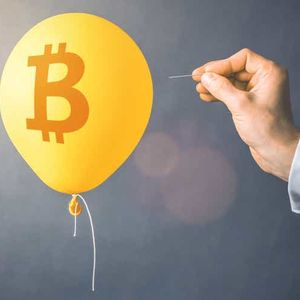Seeking Alpha
 2022-11-10 22:19:50
2022-11-10 22:19:50
Summary FTX is now scrambling to save something for the future, as its apparent collapse cannot be stopped by another buyer. It is now apparent that FTX did not do everything on its books in the right way, and now Sam Bankman-Fried is searching for $8.0 billion to save the pieces. In the past two years or so, the U.S. financial system made lots and lots of money available for people and companies to build little empires that came up short. Now, the crypto-world is paying the price for its highly prosperous days. Digital will survive and become the future, but we are still in the age of transformation, trying to find what really works and what regulation is needed. The digital world is going to survive. Digital is the future of finance. But, digital is going to be regulated. The recent experience with the failure of FTX shows us, as stated in the Financial Times , that the digital world will become fully regulated "as financial services businesses." The current experience is going to accelerate the move to greater regulation. Currently, the digital world is going through "the weeding out" stage of what works and what doesn't work in a space that has become remarkably changed. The transformation the world is moving through is breathtaking. But, a world that is transforming itself can be a painful process. Lots of people have lost lots of money. But, as Andy Kessler exclaims in The Wall Street Journal, "Bubbles collapse when no one else buys in." The problem right now, is, as Mr. Kessler states, the crypto market "is backed by nothing but air." But, the technology behind the crypto market, behind the digital market, is incredible and will find a place in the financial world. After all, finance is nothing but information, and modern information technology is providing the world with the tools to grow and spread information. Originally, cryptocurrencies were praised as the new "medium of exchange" for the world. Cryptocurrencies were to provide the payment system for the future. The fact that cryptocurrencies would also be a "store of value" was important, but was not originally at the top of the list of characteristics that would cement the role of cryptocurrencies in the world. Serving as a medium of exchange would guarantee the role of cryptocurrencies in the world. There was a real purpose for these cryptocurrencies, cementing their value to the world. Whoops! Something got out-of-line. The medium of exchange ability of the cryptocurrencies was not secured when the asset was introduced to the world. As a consequence, cryptocurrencies had to justify their existence by being just a store of value. Hence, as Mr. Kessler states, cryptocurrencies "were backed by nothing but air." Cryptocurrencies had to justify their value as a store of value, but it was not readily apparent that the cryptocurrencies really brought something of added value to the world. The Bubble Cryptocurrencies did not catch-on quickly after their introduction. For example, Bitcoin was introduced in 2009. As I showed in a recent post , nothing much happened for the first ten years or so of Bitcoin's existence. Then in 2020, the price of Bitcoin began to rise. The apparent cause of this rise was the massive amount of money that the Federal Reserve System was injecting into the financial system of the United States. These monies were being injected to protect the United States against a financial collapse that might be started by the consequences of the Covid-19 pandemic and the subsequent recession that followed. The prices of financial assets rose dramatically during this time, and the rise in these prices took on the form of a financial bubble. The spread of financial resources moved into most sectors of the financial world. Traditional asset managers benefited from the spread of this money, but new areas also benefited from the movement. One highly reported sector that benefited greatly from this spread was the "blank check" company, or, the Special Purpose Acquisition Company (SPACs) that flourished during the 2021-2022 period. Blank check companies are having problems all over the place now, and deals are just not being cut. Bitcoin made its move, and its price rose to over $67,500 on November 8, 2021. Since then, the path has been downwards. In the past day or so, Bitcoin has been down around $16,000. And, the S&P 500 Index (SP500) reached an all-time high on January 3, 2022 and has since tumbled as the Federal Reserve has tightened up its monetary policy. A lot of sectors prospered during the past two years, but now a lot has changed and many of these same sectors have suffered in the reversal. This is what happens when you have asset bubbles. The Other Side FTX is now "on the rocks." It is struggling for its life. Sam Bankman-Fried is said to have apologized for his failure. Mr. Bankman-Fried is also looking for $8.0 billion to plug the hole in his ship and keep it float for the near term. As we read in the Financial Times : "The nascent crypto industry was already struggling with a price crash triggered by the end of the cheap money era. The humbling of Sam Bankman-Fried ((SBF)) is a further blow." "The collapse of FTX has been likened to a bank run: Account holders were rushing to get their crypto assets but were being blocked from doing so." The next step: regulation, and lots of it. Already, Gary Gensler, the chair of the Securities and Exchange Commission, has already accelerated the move. Mr. Gensler was already on the track to greater regulation for the Crypto-world. Now the door has opened wide for him. If he doesn't get most of what he wants now, I would argue that he has really muffed a "gimme putt." This is the history of innovation. Eventually, the sector comes to the point where regulation becomes almost required. When the market consequences connected with the innovation become hurtful and much is lost, people step back and let the regulators in the door. In fact, they welcome them to come in. The future is digital, there is no question in my mind about that. The future includes crypto. Information grows and spreads. That is what history tells us. But, getting there can be very painful to many and can be very difficult finding the "best" path to the future. It happens. FTX is just another step down the road.
Bitcoin (BTC) $99,435.40 1.12%
{
Ethereum (ETH) $3,670.78 0.76%
Tether (USDT) $1.00 -0.01%
 Solana (SOL) 215.699601 -1.12%
{
Solana (SOL) 215.699601 -1.12%
{
Cardano (ADA) $1.09 2.11%
{
Chainlink (LINK) $23.93 1.03%
{
 Litecoin (LTC) $115.23 2.46%
Litecoin (LTC) $115.23 2.46% Helium (HNT) 6.548597 -2.88%
{
Helium (HNT) 6.548597 -2.88%
{
 Polygon (MATIC) 0.521172 0.06%
{
Polygon (MATIC) 0.521172 0.06%
{
Dash (DASH) $43.42 1.79%
 X-CASH (XCASH) 1.0E-6 -40.61%
{
X-CASH (XCASH) 1.0E-6 -40.61%
{
Dogecoin (DOGE) $0.00 5.69%







